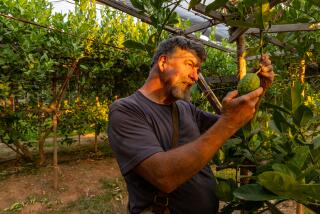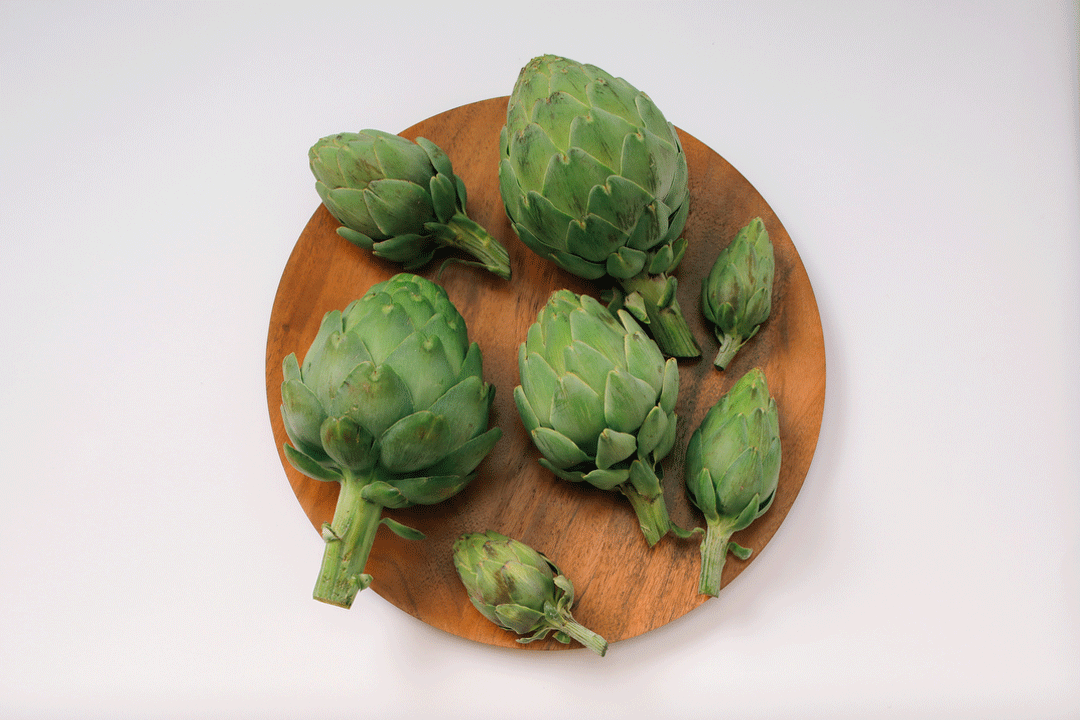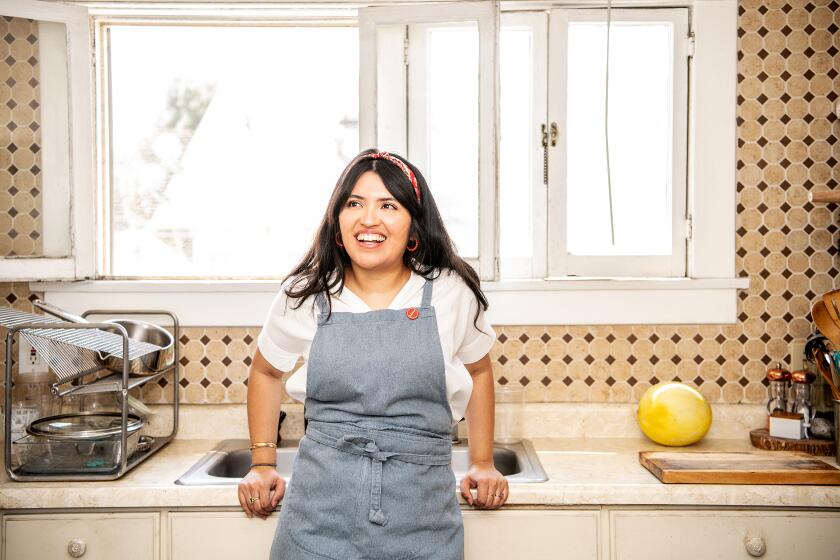Popularity on the Rise for Tasty Sunchokes
- Share via
If a contest were held to inappropriately name a vegetable, the Jerusalem artichoke would probably win hands down: It is neither a member of the artichoke family, nor does it come from Jerusalem.
It is in fact a tuber, a species of sunflower native to the United States that was already being cultivated by American Indians when the first pilgrims arrived.
The root’s identity crisis extends ever further. According to several knowledgeable sources, the sunroot, as the American Indians called it, crossed the Atlantic in the early 17th Century--only to be called Canadian artichokes, and, later on, become “topinambours” to members of the French royalty.
Thanks to its closeness to the sunflower, many produce merchandisers in this country now refer to it as a sunchoke.
Despite these confusing labels, however, the Jerusalem artichoke is gaining popularity in the United States.
The sunchoke, once considered as unexciting as a plateful of boiled green cabbage, is now often found in the gourmet produce section of supermarkets--an ironic twist of fate that underlines the rise and fall of interest in the vegetable through the centuries.
In recent years, a whole new generation of cooks is busy rediscovering the crunchy tuber, with a taste similar to a jicama or a water-chestnut, and the looks of a gnarled ginger root.
Sunchokes are most plentiful in the winter, although they are cultivated year-round.
Digging up the vegetable by hand is a labor-intensive proposition. So is the amount of time that merchandisers must dedicate to educating consumers--a fact that produce wholesalers and farmers must take into consideration.
In addition, growers such as Homer Willess of Rancho Costa Fortune in Valley Center must contend with gophers who have an avowed fondness for the crisp, juicy sunchoke. Willess has installed electronic motion devices along his rows of sunchokes to discourage the voracious pests while preserving the rest of his organically grown crop underground.
On a rainy morning recently, he dug up the moist earth with a large spade, taking care not to slice through the roots of buried sunchokes. Willess gently lifted seemingly dead roots out of the ground, bringing to light several pounds of lumpy tubers.
“These plants average about 10 pounds of sunchokes apiece,” he explained, sifting through the earth with his fingers, and shaking off the wet dirt. Three “plants” were enough to fill a mid-sized crate. “The roots I miss will just come up again in the spring,” he added, showing a visitor how each “eye,” or rhizome, on the tuber will eventually produce a new plant, much like a potato. “Each flower that blooms in summer indicates the number of tubers the plant is likely to bear, so you can pretty much tell the size of your crop by the number of blooms.”
The sunchoke’s spectacular appearance is an added bonus. In summer, the plants can sometimes reach a height of 12 feet, putting forth a bright yellow flower the size of a small dinner plate.
Willess enjoys the sunchoke’s crisp, fresh flavor as an alternative to water-chestnuts or as a change from potatoes when making stews or roasts. If overcooked, it will turn soft and unappetizing. Willess likes to use it raw in salads, or lightly-cooked in stir-fries.
Avoid buying sunchokes with soft or dark brown spots. Sunchokes are rich in Vitamin B, chromium and zinc. A little patience is required to prepare the bulbous root for cooking. Brushing the sunchoke under running water rather than peeling it will take care of clinging dirt.
Soaking it in cold water with a little lemon juice added will ensure crispness, and a nice, white flesh. Store it for up to a week in the vegetable bin in the refrigerator. If you grow your own, simply leave the roots underground indefinitely, and dig them up as you need them.
Homer Willess, Rancho Costa Fortune, 30044 Mauka Drive, Valley Center, 92082. 749-0880. Sunchokes, 60 cents a pound at Vista farmer’s market.
Cardiff Seaside Market, 2087 San Elijo, Cardiff. 753-4632. Commercial 1-pound pack with recipe, $1.99.
Boney’s Market, 705 East Vista Way, Vista, 92082, 758-7175. Commercial 1-pound pack with recipe, $1.79.
More to Read
Eat your way across L.A.
Get our weekly Tasting Notes newsletter for reviews, news and more.
You may occasionally receive promotional content from the Los Angeles Times.










